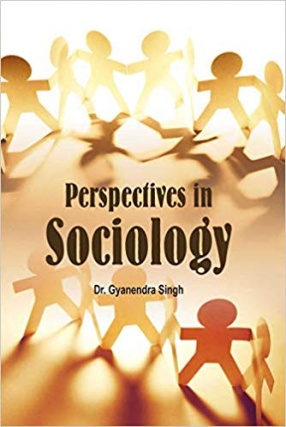Perspectives in Sociology
The writing of this book mainly grew out of the significant changes that have happened in the field of sociology around the world in the last few decades. What distinguishes it from other books is that it provides arguments and comments, wherever necessary, reflecting new developments in the subject. Sociologists today employ three primary theoretical perspectives: the symbolic interactionist perspective, the functionalist perspective, and the conflict perspective. These perspectives offer sociologists theoretical paradigms for explaining how society influences people, and vice versa. Sociologists study social events, interactions, and patterns, and they develop a theory in an attempt to explain why things work as they do. In sociology, a theory is a way to explain different aspects of social interactions and to create a testable proposition, called a hypothesis, about society. In sociology, a few theories provide broad perspectives that help explain many different aspects of social life, and these are called paradigms. Paradigms are philosophical and theoretical frameworks used within a discipline to formulate theories, generalizations, and the experiments performed in support of them. Three paradigms have come to dominate sociological thinking, because they provide useful explanations: structural functionalism, conflict theory, and symbolic interactionism. This book deals with all the development in the field of sociology in a historical context. This book is useful for sociologists researchers and social reformers.
Get it now and save 10%
BECOME A MEMBER







Bibliographic information